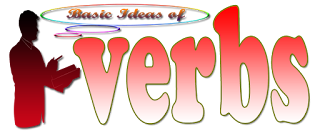Every language in the present world is to be consisted on the basis of Verb. That's why Verb is called the soul of the language. Verbs are usually used of kinds in sentences. Such as;
1. Principal Verb: This type of verb is used as the main verb or action of the sentence.
2. Auxiliary Verb: This type of verb is used as the secondary verb or action of the main verb of the sentence. There are different kinds of Auxiliary Verbs used in different kinds of sentences. Such as;
To do:
Do/does/did
To be:
Am/is/are/was/were
To have:
Have/has/had
Modals: Shall/should/can/could/will/would/may/might/ought to/must etc.
Semi Modals: Need/dare
Do/Does:
As a Principal Verb: It means the action to do something at present. Such as;
I do this work.
As an Auxiliary Verb: It means no direct sense but it helps the main verb to make meaningful sentence (Negative & Interrogative sentences). Such as;
I do not do this work anymore.
Do you go to school?
Did:
As a Principal Verb: It means the action to do something in the past. Such as;
I did this work.
As an Auxiliary Verb: It means no direct sense but it helps the main verb to make meaningful sentence (Negative & Interrogative sentences). Such as;
I did not do this work anymore.
Did you go to school yesterday?
Am/Is/Are/:
As a Principal Verb: It means the action to be something/someone at present. Such as;
I am a student of RECA ONLINE.
As an Auxiliary Verb: It means no direct sense but used in Present Continuous Tense before main Verb (ing) and in Passive Voice. Such as;
I am going to school right now.
The work is done by me/The work is being done by me.
Was/Were:
As a Principal Verb: It means the action to be something/someone in the past. Such as;
I was a student of RECA ONLINE.
As an Auxiliary Verb: It means no direct sense but used in Past Continuous Tense before main Verb (ing) and in Passive Voice. Such as;
I was going to school right now.
The work was done by me/The work was being done by me.
Have/Has:
As a Principal Verb: It means the action to have something/someone at present. Such as;
I have a car.
As an Auxiliary Verb: It means no direct sense but used in Present Perfect Tense before main Verb (Past Participle Form) and in Passive Voice. Such as;
I have become an English teacher of RECA ONLINE.
He has been made the chairman of the RECA Language Club.
Had:
As a Principal Verb: It means the action to have something/someone in the past. Such as;
I had a car.
As an Auxiliary Verb: It means no direct sense but used in Past Perfect Tense before main Verb (Past Participle Form) and in Passive Voice. Such as;
I had become an English teacher of RECA ONLINE.
He had been made the chairman of the RECA Language Club.
Can/May:
Can: It is usually used to indicate the ability of something/someone. Such as;
I can do this work.
May: It is usually used to indicate the possibility of something/someone and the permission of someone. Such as;
I may do this work.
You may go now.
Shall/Will: It means the action to do in future. Such as;
I shall go to London for my higher study.
He will go for work.
Could/Might/Would: It indicates to do something imaginary. Such as;
I wish I could be there with you.
I might make this on time.
Should/Ought to: It indicates something worthy or reasonable or advisable to do. Such as;
You should help the poor.
We ought to help each other.
Used to: It indicates the habit of something/someone to do usually in the past. Such as,
I used to play football.













No comments:
Post a Comment